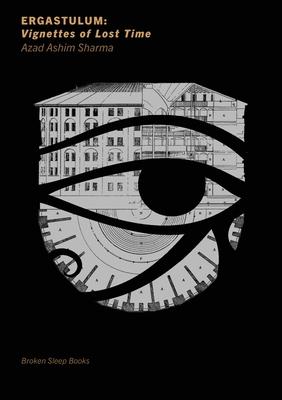There is no single theme that binds together Ergastulum's collaged poems, essay-fragments, diary entries, and dream sequences. An experiment in longing for collective duration, yearning for touch in an embrace between friends, and the desire for meaningful social change, Ergastulum: Vignettes of Lost Time is Azad Ashim Sharma's first full-length collection of hybrid writing. As the product of a reading practice and an attempt at reclaiming embodiment from the atomising of time in an increasingly digital workplace, Ergastulum formed during the pandemic whilst reading Byung Chul-Han, Lewis R. Gordon, Fred Moten, Jacques Derrida, Nathaniel Mackey, and Karen Barad. This is auto-theory as lyric amalgam; a collection of thresholds along the desire lines of otherhood; a prayer against the onslaught of capital's deracination of time itself; an incantation or spell cast out by turning the page into the open space of streets populated by protest.

There is no single theme that binds together Ergastulum's collaged poems, essay-fragments, diary entries, and dream sequences. An experiment in longing for collective duration, yearning for touch in an embrace between friends, and the desire for meaningful social change, Ergastulum: Vignettes of Lost Time is Azad Ashim Sharma's first full-length collection of hybrid writing. As the product of a reading practice and an attempt at reclaiming embodiment from the atomising of time in an increasingly digital workplace, Ergastulum formed during the pandemic whilst reading Byung Chul-Han, Lewis R. Gordon, Fred Moten, Jacques Derrida, Nathaniel Mackey, and Karen Barad. This is auto-theory as lyric amalgam; a collection of thresholds along the desire lines of otherhood; a prayer against the onslaught of capital's deracination of time itself; an incantation or spell cast out by turning the page into the open space of streets populated by protest.